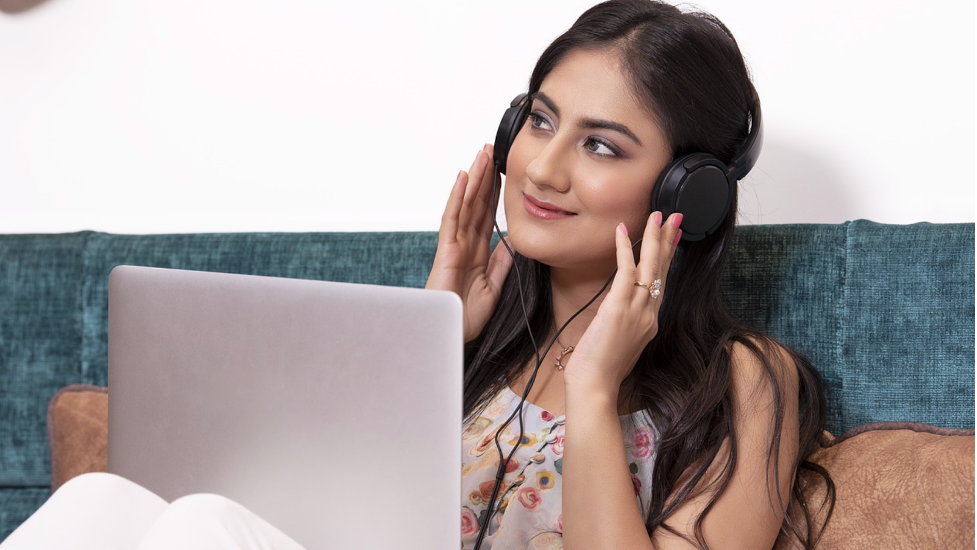Recently on The Late Show With James Corden, rising star Phoebe Bridgers performed from her bed in what wound up being a rather stunning show. Bridgers started the performance of her hit single “Kyoto” in bed, before being transported to Carnegie Hall (via green screen) in a dream sequence, as if imagining herself on stage.
In a year so devoid of live music or really performances of any kind, it may well stand as the defining musical moment of the month. Bridgers’s “Kyoto” might not have quite made our top five singles of the year, but the brilliant tune has made a late push as one of the songs of 2020. Indeed, “Kyoto” even made it onto President Obama’s annual year-end playlist. As much as this Late Show performance felt like a brilliant bow on a breakout year for Phoebe Bridgers though, it also came across as a not-so-subtle nod to the rise of “Bedroom Pop.”
Now, this is not necessarily meant to be as literal a term as to signify an artist singing from her own bed. Rather, for those who may not be familiar, it’s a term that refers to a music movement fueled by online platforms, and in some cases making stars of at-home performers who may otherwise have gone unnoticed. So while Bridgers herself took a different route to discovery, her performance — a young woman singing in her bedroom and dreaming of bright lights and big stages — captured the spirit that is driving numerous indie artist to prominence.
But how exactly are they getting there?
The true foundation of the bedroom pop star movement is the simple fact that better recording and editing software has become affordable — and in fact free in some cases. A program as ubiquitous as Apple’s Garageband can help a creative and patient artist to produce professional-caliber tracks, even if it takes some time to reach that level. And this, more than anything else, helps make the difference. People who 10 years ago might simply have played guitars and sung into their webcams to post music online can now record, edit, and upload music that sounds as if it were produced in a studio.
Another major factor is the rise of social media and the availability of music streaming options. When we say that bedroom pop stars can record, edit, and upload their music, it matters a great deal where those uploads take place. Musicians’ use of social media has evolved over time, such that they can now post, promote, and share their tracks on any number of platforms geared toward certain audiences and maximum exposure. From SoundCloud to Spotify, various services help artists to gather followings and give them easy ways to share music through personal social media channels and their own websites as well.
Success still requires diligent and creative marketing, but many of these services also do some of the work on their own. They’ll suggest indie artists to people with relevant taste, and they’ll promote music as it gains popularity. This doesn’t guarantee exposure by any means, but it is a system designed to amplify success. If an indie artist starts to gain attention on these platforms, in other words, the platforms themselves will make it more likely that that attention will grow.
On top of all of this, it’s also worth noting that some of these “bedroom pop stars” and similar indie artists can now take the route of establishing themselves as professionals in a way that wasn’t as readily available in the past. The process of starting a record label in particular is one that can now be done almost entirely online — which is one reason that nearly 40% of labels now fall into the “independent” category. Granted, this kind of venture is one usually undertaken by someone looking to sign other musicians and produce albums. But as we see with some of the most famous artists in music today, there’s certainly no problem with having one’s own label. And for an indie artist who finds an audience online, starting a label and producing an album can be a great way to build on success and work toward a sustainable career.
All in all, this is a movement that is beginning to produce some very real talent, and which could well be responsible for a new wave of young and previously unknown musicians. Right now, Billie Eilish is undoubtedly the most prominent example of a bedroom pop star hitting it big. She emerged in 2015 via a SoundCloud hit (“Ocean Eyes”), subsequently released various successful tracks and albums, and is now one of the most successful artists in the world. Eilish virtually swept the Grammys, and recorded the title track for the next James Bond film as well.
She may be a somewhat extreme example, considering the pure scope of her success. Nevertheless, Eilish shines a light on what this whole movement can result in. The bedroom pop star development means that someone can go making private music at home, to becoming an online sensation, to enjoying a successful career as a professional artist.


